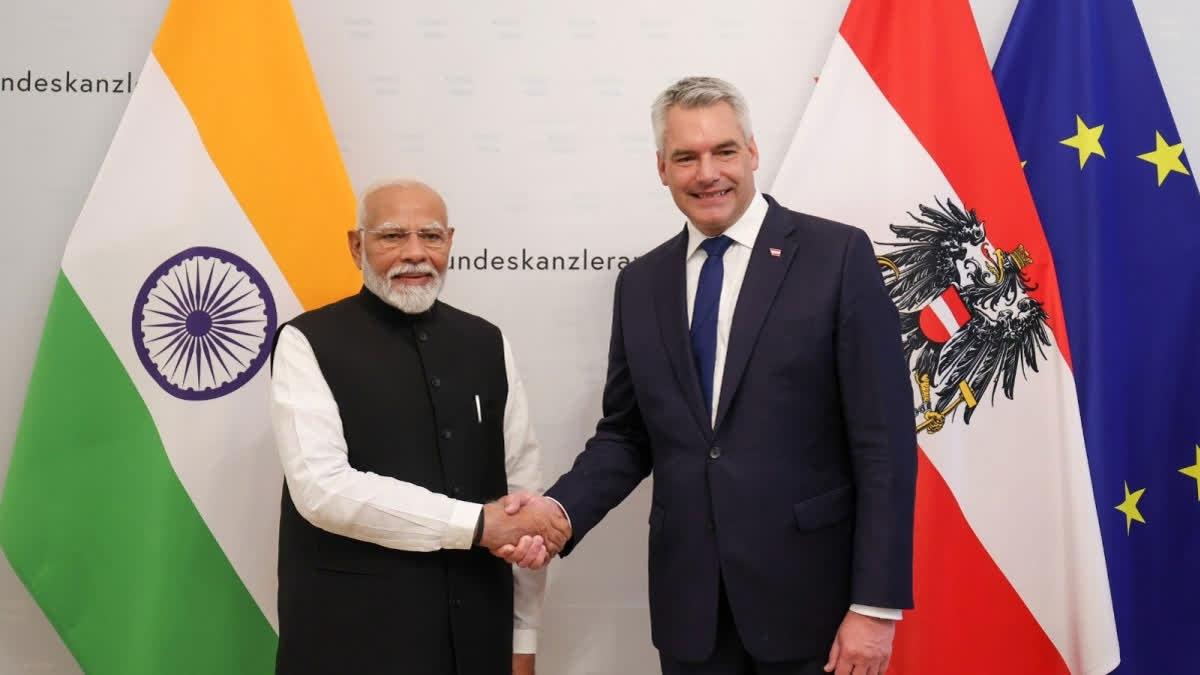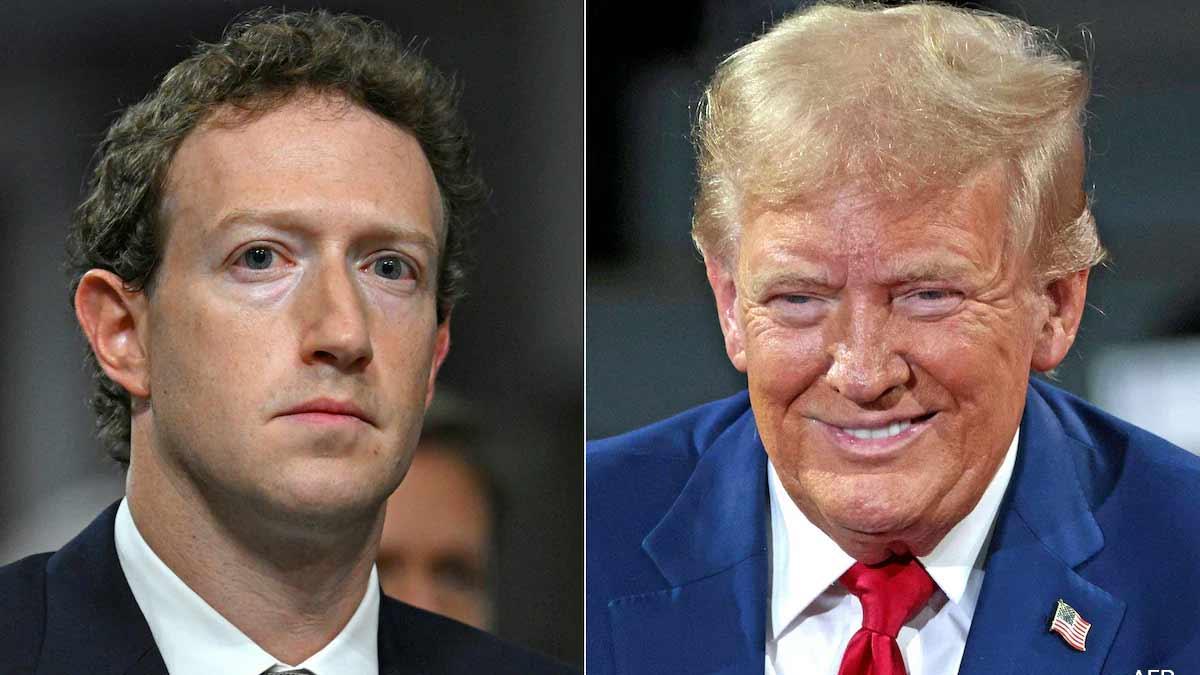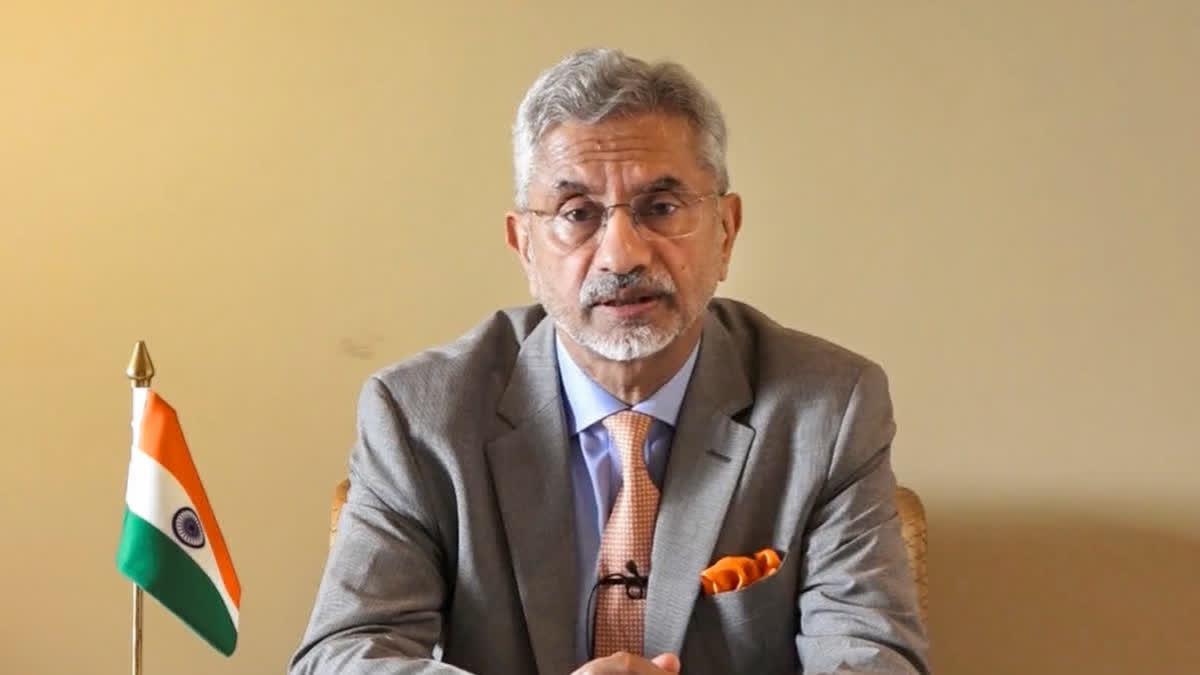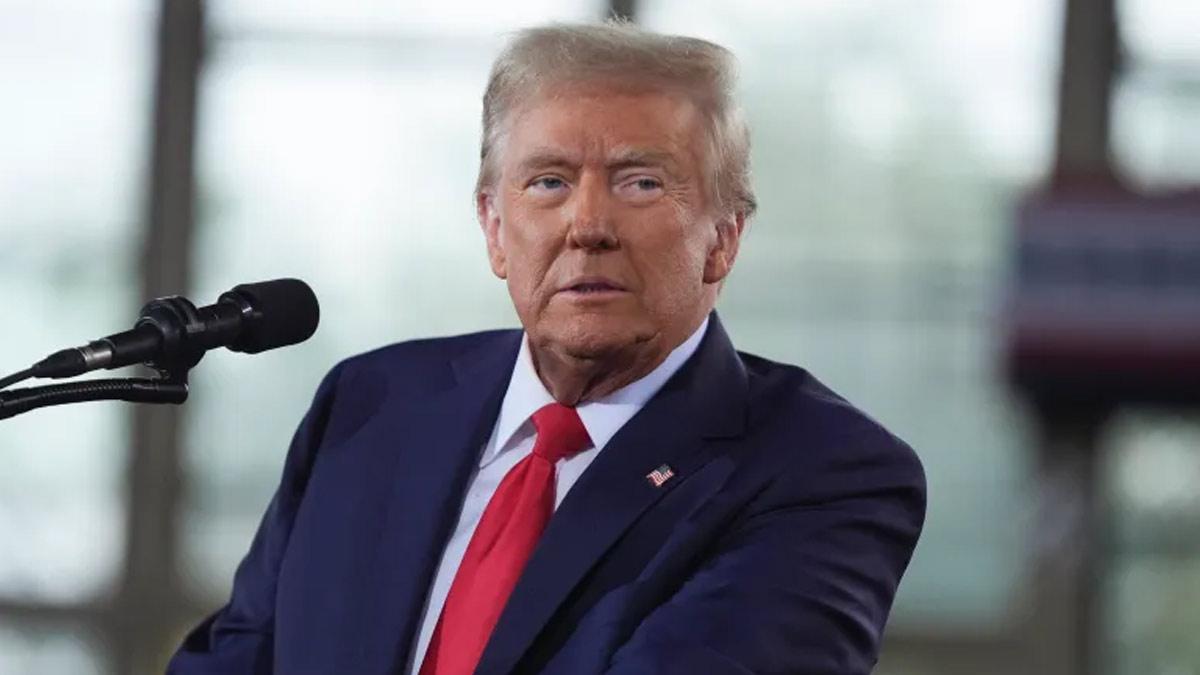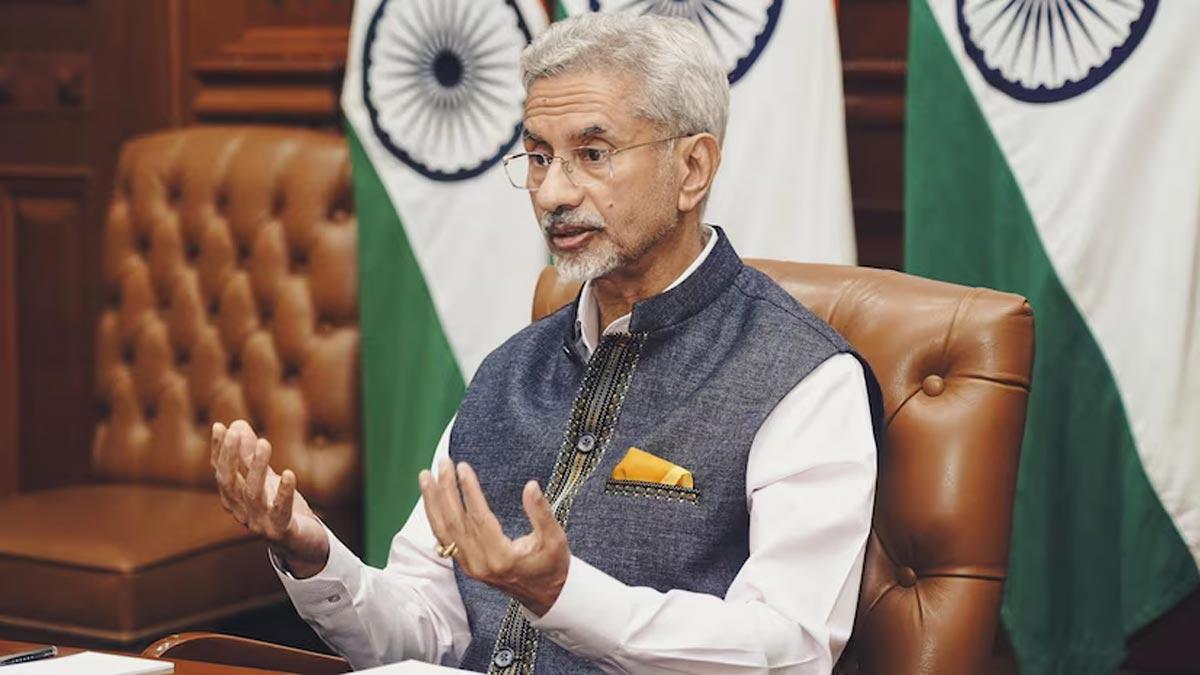India and Austria backed any collective efforts to facilitate a "peaceful resolution" to the Ukraine conflict, in line with international law and the UN Charter, and highlighted that achieving lasting peace in Ukraine involves engaging all relevant stakeholders. This was articulated in a joint statement following discussions between Prime Minister Narendra Modi and Austrian Chancellor Karl Nehammer. The leaders discussed recent developments in Europe and West Asia in detail.
Both leaders emphasized the significance of democratic nations like India and Austria collaborating to promote international and regional peace and prosperity. Prime Minister Modi had arrived in Vienna from Moscow, where he had met Russian President Vladimir Putin.
The joint statement revealed that Modi and Nehammer exchanged in-depth views on recent developments in Europe and West Asia/Middle East, noting that both countries prioritize efforts to restore peace, avoid armed conflict, and adhere strictly to international law and the UN Charter.
Regarding the Ukraine war, both leaders supported any collective initiative that aims to achieve a peaceful resolution consistent with international law and the UN Charter. They believe that a comprehensive and enduring peace in Ukraine necessitates bringing together all stakeholders for sincere and earnest engagement between the conflicting parties.
Prime Minister Modi reiterated that "this is not the time for war," and both India and Austria stressed the importance of dialogue and diplomacy for the earliest possible restoration of peace and stability.
In their joint statement, the leaders reaffirmed their commitment to a "free, open, and rules-based Indo-Pacific," in line with international maritime law as outlined in UNCLOS, emphasizing "full respect for sovereignty, territorial integrity, and freedom of navigation." This was seen as a subtle reference to China's assertive actions in the region.
The leaders also condemned terrorism unequivocally in all its forms, including cross-border and cyber-terrorism, stressing that no nation should provide safe havens to those who finance, plan, support, or commit terrorist acts. This was an apparent reference to Pakistan and its ally China, which has often delayed UN proposals to blacklist wanted terrorists based in Pakistan.
Both leaders called for concerted action against all terrorists, including those designated by the UN Security Council 1267 Sanctions Committee. They reiterated their commitment to collaborate within FATF, NMFT, and other multilateral platforms.
Modi expressed gratitude to Nehammer for the warm hospitality extended by the Austrian government and its people. Modi also invited Nehammer to visit India, an invitation which the Chancellor accepted with pleasure.
Additionally, Modi extended an invitation to Austria to join the International Solar Alliance, which recently celebrated its 100th member. The leaders emphasized that shared values of democracy, freedom, international peace and security, a rules-based international order with the UN Charter at its core, and the historical ties between the two countries underpin their growing partnership.
They reaffirmed their commitment to deepening and expanding bilateral, regional, and international cooperation for a more stable, prosperous, and sustainable world. Modi described his visit to Austria as historic and special, marking the first visit by an Indian Prime Minister to Austria in 41 years, coinciding with the 75th anniversary of diplomatic relations between the two countries.
Modi and Nehammer recognized the potential to "significantly upgrade" their bilateral partnership and agreed to take a strategic approach to advance this goal. They emphasized the need for a future-oriented bilateral sustainable economic and technology partnership, covering new initiatives and joint projects, collaborative technology development, research and innovation, and business-to-business engagement in areas such as green and digital technologies, infrastructure, renewable energy, water management, life sciences, smart cities, mobility, and transportation.
"To this end, in addition to closer political-level dialogue, they emphasised on a future-oriented bilateral sustainable economic and technology partnership, covering a range of new initiatives and joint projects, collaborative technology development, research and innovation and business-to-business engagement inter alia in green and digital technologies, infrastructure, renewable energy, water management, life sciences, smart cities, mobility and transportation," the joint statement said.
Read also | India and Austria Forge Closer Ties, Navigate Ukraine and West Asia Conflicts

